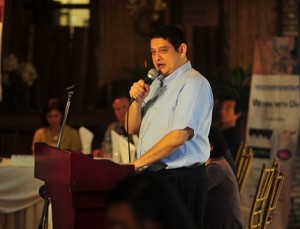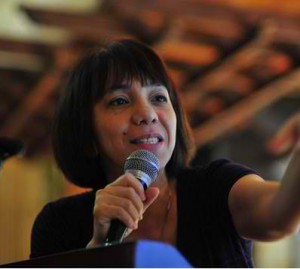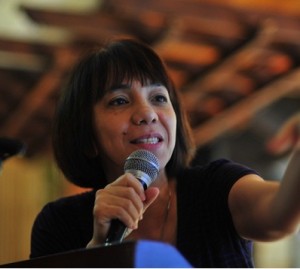EVEN government officials have now joined media practitioners and civil society organizations in urging President Benigno Aquino III to certify as urgent the passage of the Freedom of Information (FOI) Bill, which has failed to make it to his list of priority bills.
The call was made at a recent forum on the Philippine Public Transparency Reporting, which advocates support for citizen engagement towardgood governance. It is a project supported by the Australian Agency for International Development.
Sen. TG Guingona, forum guest speaker, said the FOI bill needs to be passed because “freedom of information is the cornerstone of transparency.”
“(The) common enemy is corruption,” he said. “We need to tell our people that their hard-earned-money is safe in this country.”
The other panelists included Interior and Local Government Secretary Jesse Robredo, Commission on Audit Chair Ma. Gracia Pulido-Tan, and whistleblowers Rodolfo “Jun” Lozada and COA Commissioner Heidi Mendoza.
The FOI bill will help give substance to a Constitutional provision that guarantees the people’s access to information.
Robredo said the government has opened the avenue for the public to engage in and understand the budgetary process. He said he has ordered all DILG units to make their budgets accessible on the web.
“Even ordinary Filipinos should have access to the budget which is really hard to understand in the first place; more so in the procurement of supplies,” he said. “Putting it on the web is cheaper. There is now 90 percent compliance for full disclosure.”
Pulido-Tan said COA has set up an integrated program such as the citizens’ desk to receive complaints from the public and involve them in data gathering and in reporting anomalies committed by government agencies in financial liquidation and auditing.
“We can only do so much,” she said. “Corruption is a two-way street. Public engagement is key to accountability. “Don’t bring your secrets to the grave.”
Whistleblower and now COA Commissioner Mendoza expressed optimism there are more reform champions and reform-minded individuals in the government today. She stressed the need to process and popularize information and data such as financial statements for ordinary people to understand.
Fellow whistleblower Lozada of the infamous NBN-ZTE scandal said there is a need for citizens to go out and make some people accountable.
 “There are so many people now wanting to come out and tell the truth,” he said. “Truth is a fatal commodity. There is now a growing family of whistleblowers.”
“There are so many people now wanting to come out and tell the truth,” he said. “Truth is a fatal commodity. There is now a growing family of whistleblowers.”
Niel Lim, communications officer of INICITEGov, said freedom of information precedes public engagement.
“We need an educated and concerned public who is eager to protect common interests to understand the information given them,” he said.
Code NGO project coordinator Sandino Soliman agreed that public engagement is essential in fighting corruption, “especially now that the national government is opening avenues for ordinary citizens and organized groups such as the CSOs to engage in various affairs of the State.”
Red Batario, executive director of the Center for Community Journalism and Development, noted a recent online survey showing that “the judiciary and legislature have to catch up with the administration’s nationwide campaign against corruption.”
The online survey conducted by the Pera Natin ‘To project showed that between June and August 2011, eight out of 10 respondents believed both branches of government have major roles to play in fighting corruption while less than a tenth believed they are so far doing a good job.
A total of 176 respondents composed of activists, civil servants, lawyers, journalists, students, accountants and professionals from major cities and provinces nationwide took part in the survey.
Abner Francisco, chairperson of WATCH Kidapawan, said among their landmark initiatives were exposes on questionable transactions, including the Kidapawan City government’s non-existent waste water treatment which costs close to P6 million.
“Samar’s main issues have always been poverty and bad governance,” Emy Bonifaco, spokesperson of Multisectoral Alliance for Transparency and Accountability (MATA) in Samar, said. “Like many others, we also dream of a corrupt-free society.”
MATA works closely with local media in coming out with stories about corruption of local government officials in Samar, Bohol and Misamis Occidental.
Efforts toward government transparency and public accountability have resulted in the establishment of citizen’s watchdog groups for local government accountability in these areas. They have produced more than 100 reports and investigations and trained more than 390 journalists and civil society workers on budget and finance issues since March 2010.
Photos by Jes Aznar of the Philippine Public Transparency Reporting

